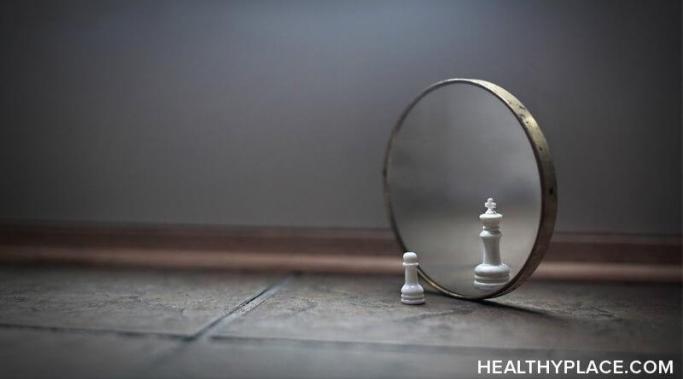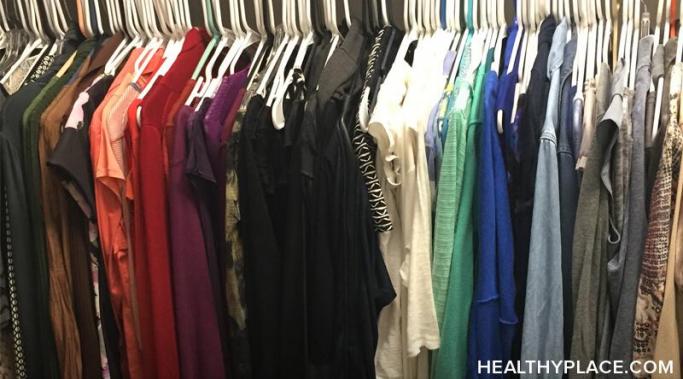Blogs
Is it really possible to build self-confidence when you have depression? Yes, it can be done. While the challenge is greater for those of us with depression, it truly is within our ability to build up confidence within ourselves. Now that we know building self-confidence is possible, let's find out how we can start working towards that goal today.
Self-esteem affects mental health and low self-esteem often results from having a mental illness. I struggle with depression and anxiety, and I'm constantly battling negative thoughts that say I'm not good enough. I judge myself and compare myself to others. I'm afraid to put myself out there.
I try to visit my childhood home, my peaceful sanctuary, at least once every few weeks. I’ve fallen behind on those visits recently, due to working through the logistics of my anxiety-provoking move. With the move out of the way, last weekend I was able to visit my peaceful sanctuary for the first time in nearly two months.
If you have access to the Internet, then chances are, you're aware of the popular "fitspiration" trend, but have you considered—or worse, experienced—its influence on the spread of eating disorders? For several years, fitspiration has been gaining traction and momentum on social media. Self-appointed wellness experts are using the buzzword as a hashtag for their Instagram posts. Fitness-themed Pinterest boards are cluttered with images of men and women exercising their toned physiques, overlaid with mantras like, "Strong is the new skinny." Upon first glance, these phrases seem innocuous—progressive shifts toward strength over thinness. But the truth is, fitspiration can influence eating disorder behaviors, so it's important to examine the subliminal messages beneath the motivational words and snapshots.
Pushing the limits of my mental health lets me live an ambitious life, but it comes with a cost. There's so much I want to do, but overloading my schedule sometimes means sacrificing my mental health. I don't mean having a full-on episode of my mental illness, but rather, dealing with breakthrough symptoms that sometimes occur when I'm feeling overwhelmed. I feel like I have to choose between living symptom-free or pursuing my ambitions, so I often find myself pushing the limits of my mental health.
The terms self-esteem and self-worth are often used interchangeably. However, their meanings are quite different. Some people focus on building their self-esteem, while others prefer to strengthen their sense of self-worth. In actual fact, though, the development of both is essential in remaining grounded and healthy. Let’s take a look at some of the key differences between self-esteem and self-worth to see why this is the case.
Attention-deficit/hyperactivity disorder (ADHD) can make shopping for clothes difficult. Some with ADHD love shopping for clothes, while others (like myself) find it tedious. Whatever the case, our sensitivity, impulsiveness, and prioritizing problems throw a wrench into the works. Since I am currently replacing my wardrobe, bit by bit, I would like to offer a few suggestions to make ADHD shopping easier.
Using your strengths to feel better when you have depression isn't easy, but it's important. During a depressive episode, you have probably felt emotionally and/or physically weak. Feeling this way can drain your motivation and cause you to think that life will never get better. The good news is that it is possible to use your strengths when you feel you are at your weakest. The first step is acknowledging your strengths so that you can use them to your full capacity. Read this article for tips on how to remember and use your strengths when depression brings you down.
I'm guilty of discounting simple remedies for mental illness. I would always see something like changing a sleep pattern as simple in comparison to the complex nature of mental illness. I couldn't understand how one could truly make a difference on the other and saw people suggesting that it could as a gross misunderstanding of mental illness and ultimately a perpetuation of stigma. But sometimes the simple solutions are the ones we need to alleviate the symptoms and improve mental wellbeing, which is what I learned recently when I realized how much sleep affects my mental health.
I'm returning to the basics of binge eating recovery because lately, I've been feeling not so strong in my recovery. I've been experiencing urges to binge, along with feeling down and wanting to isolate myself. Being aware of what was going on, I realized I needed a recovery refresher to keep me on track. This refresher of sorts includes me going back to the basic skills of binge eating recovery that helped me get well at the beginning of my journey.









